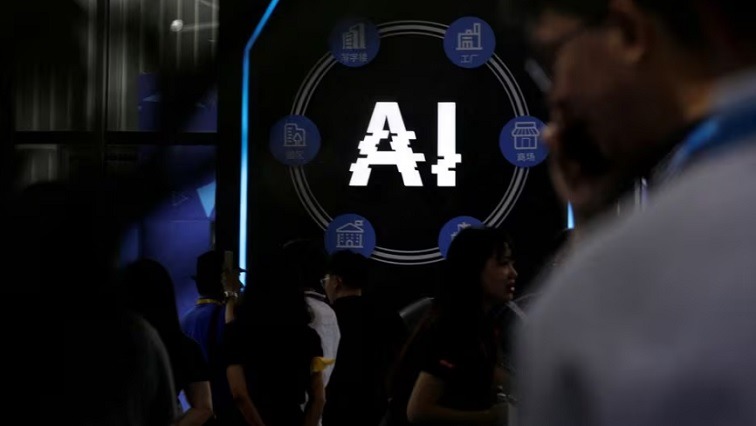-
AI (Artificial Intelligence) letters and robot miniature in this illustration.
Proper Artificial Intelligence Infrastructure, including access to high-speed internet, computational resources and data storage capabilities are some of the challenges hindering some G20 countries, participating and benefiting from the advancements in Artificial Intelligence (AI).
Conversations on Day 3 of the G20 Working Group under way in Gqeberha, also centered on how AI can assist in critical sectors such as healthcare, education and agriculture.
In healthcare, AI improves diagnostics, enables personalised medicine and enhances patient care. AI is rapidly emerging as a driving force behind economic and social change globally – for South Africa, it presents a unique blend of opportunities and challenges.
AI can drive significant advancements in sectors like healthcare, agriculture, and education, which are critical for a country’s development.
Minister of Communication and Digital Technology, Solly Malatsi has called on G20 members to support initiatives that develop Artificial Intelligence in low-resource languages.
“The focus of our approach is about equity in terms of advancements in AI so that we don’t leave anyone behind, because there are countries as you have correctly pointed out, that have made massive strides in terms of the use of AI towards how government delivers services, towards empowering citizens to access those services and for us when you look at languages that are used in AI applications, it’s very few of those. So, we are in here going to say that can perpetuate a new form in inequity that we must address. So, we must look at an inclusive approach in AI technic.”
South Africa has witnessed a significant uptake of AI technologies across various sectors. According to a study by the South African Department of Trade and Industry, the AI market in South Africa is projected to reach R6.9 billion in 2025, driven by increased investment and adoption across industries.
Chief Director of Emerging Technologies and Innovation, Jennette Morwane says proper infrastructure has to be put in place.
“The ideas of digital transformation, they focus on how we can use the power for technology to make sure that we transform our economy but also impact our society and we impact our society by making sure we have broadband connectivity, so that our citizens can also participate on the digital economy.”
While AI adoption may lead to some job displacements, it also brings forth a wave of job creation and transformation.
These jobs will encompass a wide range of sectors, including healthcare, technology, finance and more.
African Union Development Agency representative, Brando Chidi Okolo says the collaboration between humans and AI can open up endless opportunities.
“Often times we think that AI is going to take jobs away from people but I’m of the opinion that people who are AI ready are the ones that are going to take the jobs away from other people. So, I think we need to start building on the capacity, we can use AI in the way we run our governments, the way we run our businesses, the private sector, the way we run out manufacturing lines, AI could be used there. So, I’m of the view that the key focus should be on how we build our capacity, how do we start training AI engineers, how do we start training prompt specialists, those that build the tools that algorithms require.”
German Director-General for Digital and Data Policy Benjamin Brake echoes these sentiments.
“We need to set a regulatory framework, we need to also address the challenges and the possible problems for AI, for example in the medical devices. Humans and AI working very closely together, working hand in hand for better results. When it comes to small and medium sized companies for example, in Germany we have small and medium companies as the backbone of our industries but what we will see is a refinement, a fine tuning of existing products and services of world-leading German enterprises where they integrate AI to be more competitive in the global market.”
There has also been a call for organisations and governments to prioritize upskilling initiatives to prepare for the AI-driven future.











